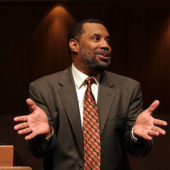There are a number of mistakes that can be made with demographic and psychographic research, such as studying a group too young, and then making erroneous projections on the basis of their youthful immaturity.
Example: if you had studied the average participant of Woodstock, would you have forecast the Yuppie?
Hardly.
A similar mistake is being made about the Millennials, but it isn’t about catching them too early.
It’s about studying the wrong ones.
The evangelical publishing world is fixated on why Millennials are leaving the church. They get them to write blogs, articles and books about their disaffection, and from this extrapolate what the church has to do and where it has to change in order to reach this generation for Christ.
Um…hold on.
Why are we focusing on Christian Millennials who leave the church in order to learn how to reach non-Christian Millennials who are not in the church?
Am I the only one that thinks this is a pertinent question?
The disaffected Christian Millennials are not abandoning Christ, just the church. Okay, so did their parents. And their parents before them. They either came back to the church, or reinvented it stylistically.
Not exactly news.
What is news is the rise of the “nones,” which are those Millennials (and their parents) who are abandoning religion altogether.
This isn’t a story about Christians wanting more of a narrative, wishing their pastor was more like Donald Miller, hating the production of the eighties mega church, or anything else.
That’s an evangelical sub-culture thing.
The real issue is much larger.
So if we are going to talk to someone, and listen to someone, and learn from someone, let’s talk, listen and learn from Millennials that have not been Christians, much less churched.
After all, they are the true Millennial mission field.
For more about how to talk to the ‘nones’ or non-christian millennials



















